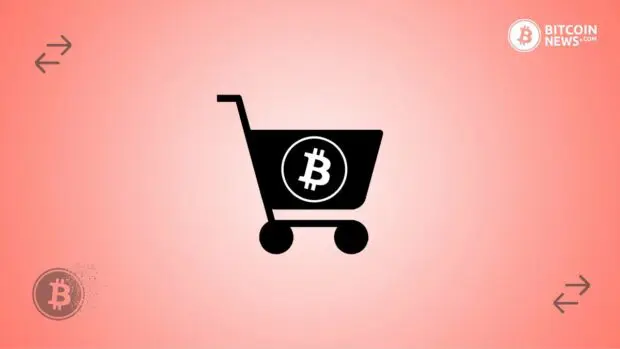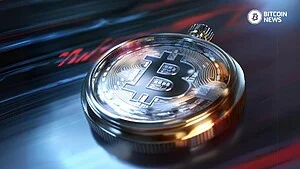Table of Contents
Introduction
Bitcoin, the world’s first and most popular digital asset, has caught the attention of investors, tech enthusiasts, and the general public alike. If you’re looking to join the Bitcoin movement, one of the first questions you might have is, “Where can I buy bitcoin?” There are several methods to purchase bitcoin, each with its unique advantages and disadvantages. Let’s explore them.
How to Buy Bitcoin: Methods and Their Tradeoffs
In-Person (P2P Exchange)
Buying bitcoin in person through peer-to-peer (P2P) exchanges can be likened to a digital marketplace where individuals can directly trade bitcoin. It’s like buying a used bike from someone online, but instead, you’re buying digital currency. Websites and apps connect buyers and sellers, and they meet up to exchange bitcoin for cash or other payment methods. This method is favored by those who prefer a more personal touch and value privacy. Note that not all options out there require you to meet in person.
Pros:
- Anonymity: P2P transactions can offer more privacy.
- Control: You can negotiate the price and terms directly.
- Cash Accepted: No need for a bank account or credit card.
Cons:
- Security risks: Meeting strangers for transactions can be risky.
- Price fluctuations: Prices can vary widely between sellers.
- Effort: Requires more knowledge and effort to find trustworthy sellers.
Use a trusted P2P platform with an escrow service. Meet in public, safe spaces. Never share personal information.
Online Exchange
Online exchanges are like bitcoin markets. On exchanges, you can buy bitcoin using various payment methods like bank transfers, credit cards, or even other digital assets. These platforms offer a user-friendly interface, making it easy for beginners to buy bitcoin. They also provide additional services like dollar-cost-averaging and limit orders. It’s a popular choice for its convenience and range of features.
Pros:
- Convenience: Easy to use and accessible from anywhere.
- Variety: Access to various payment methods.
- Features: Advanced trading features and tools.
Cons:
- Security Risks: Exchanges can be targets for hacks.
- Fees: Transaction and withdrawal fees may apply.
- Identity verification: Requires personal information for account setup.
Choose exchanges with strong security measures. Use two-factor authentication and unique, strong passwords. Keep your bitcoin in a private wallet, not on the exchange.
OTC Desk (Online or In-Person)
Over-the-counter (OTC) desks are like private banks for large-scale transactions. They’re ideal for those looking to buy or sell large amounts of bitcoin discreetly and efficiently. OTC desks offer personalized service, often providing better prices for large transactions than what’s available on public exchanges. They cater to high-net-worth individuals, institutions, and anyone making large trades.
Pros:
- Suitable for large transactions.
- Personalized service and privacy.
- Less impact on the market price for large orders.
Cons:
- Minimum purchase amounts can be high.
- Requires finding a reputable OTC broker.
- Less transparent pricing compared to exchanges.
Verify the credibility and track record of the OTC broker. Use secure communication channels for transaction discussions.
Bitcoin ATM
Bitcoin ATMs operate similarly to traditional ATMs, but instead of withdrawing cash, you can buy bitcoin using cash or debit cards. These machines are increasingly popping up in public places like shopping malls and airports. They offer a quick and intuitive way to purchase bitcoin, making them ideal for beginners or those looking for small, quick transactions.
Pros:
- Convenient for small transactions.
- Straightforward and user-friendly.
- Offers anonymity for smaller purchases.
Cons:
- High transaction fees.
- Limited availability in certain regions.
- Often requires a phone number or ID for larger transactions.
Use ATMs in secure and well-monitored locations. Be aware of your surroundings, especially if carrying cash.
Selling Products or Services for Bitcoin
This method involves accepting bitcoin as payment for goods or services, just like you would accept traditional money. It’s an innovative way to earn bitcoin and can be particularly appealing for online businesses or freelancers. This method not only helps grow your business by tapping into the Bitcoin-savvy market but also immerses you in the digital currency ecosystem.
Pros:
- Earn bitcoin directly without needing to buy.
- Expand customer base to those preferring to pay in bitcoin.
- Enhances business innovation and appeal.
Cons:
- Fluctuating value can affect earnings.
- Limited customer base using Bitcoin.
- Requires understanding of how to securely receive and store bitcoin.
Use a secure bitcoin payment gateway. Regularly transfer bitcoin earnings to a private and secure wallet.
Mining
Bitcoin mining involves using powerful computers to solve complex mathematical problems, which in turn validates transactions on the Bitcoin network. Successful miners are rewarded with new bitcoin. This method is akin to a competitive lottery where your computing power increases your chances of earning bitcoin. It requires technical knowledge and significant upfront investment in hardware and electricity.
Pros:
- Potential for earning bitcoin without direct purchase.
- Supports the Bitcoin network and contributes to decentralization.
- Can be profitable if electricity costs are low and mining efficiency is high.
Cons:
- High initial investment in equipment.
- Significant ongoing electricity costs.
- Increasingly competitive and less profitable over time.
Ensure network security to prevent hacking. Use reliable mining software and keep your mining hardware secure.
Comparison Table of Methods Observed
| Purchasing Method | Pros | Cons | Security Tips | User Experience Level | Risk Level |
| In-Person (P2P Exchange) | Anonymity, Control, No bank needed | Security risks, Price fluctuations | Use trusted platforms, public meetings | Intermediate to Advanced | Variable |
| Online Exchange | Convenient, Variety, Features | Hacking risk, Fees, Identity verification | Strong passwords, Two-factor authentication | Beginner to Advanced | Moderate |
| OTC Desk | Suitable for large transactions, Privacy | High minimum amounts, Broker dependency | Verify broker credibility | Advanced | Moderate |
| Bitcoin ATM | Convenient for small transactions, Simple | High fees, Limited availability | Use secure locations | Beginner to Intermediate | Moderate |
| Selling Products/Services | Earn Bitcoin, Expand customer base | Value fluctuation, Limited Bitcoin users | Secure payment gateway | Intermediate | Variable |
| Mining | Potential earnings, Supports network | High costs, Competitive | Secure network and hardware | Advanced | High |
Conclusion
Each method of buying bitcoin comes with its own set of advantages and challenges. Your choice depends on factors like the amount you want to invest, your desire for privacy, convenience, and the level of risk you’re comfortable with.
For beginners, online exchanges often provide the easiest entry point, while more experienced users might opt for P2P exchanges or OTC desks for larger transactions. Bitcoin ATMs offer a quick and straightforward way for small, anonymous purchases. Selling products or services for bitcoin can be a creative and direct method, while mining is more technical and investment-intensive.
Regardless of the method, it’s essential to do thorough research, understand the risks involved, and ensure the security of your bitcoin once purchased. Happy bitcoin buying!
FAQ
u003cstrongu003eWhere can I buy Bitcoin?u003c/strongu003e
Bitcoin can be purchased through various methods, including in-person peer-to-peer exchanges, online exchanges, OTC desks, Bitcoin ATMs, selling products or services for Bitcoin, and mining.
u003cstrongu003eWhat is a peer-to-peer (P2P) exchange?u003c/strongu003e
P2P exchanges are digital marketplaces where individuals directly trade Bitcoin. Buyers and sellers connect through websites or apps, meeting to exchange Bitcoin for cash or other payment methods.
u003cstrongu003eWhat are the advantages of using a P2P exchange?u003c/strongu003e
P2P transactions offer anonymity, direct price negotiation, and the acceptance of cash without the need for a bank account or credit card.
u003cstrongu003eWhat are the risks associated with P2P exchanges?u003c/strongu003e
Risks include security concerns when meeting strangers for transactions, price fluctuations, and the effort required to find trustworthy sellers. Recommendations include using trusted platforms with escrow services and meeting in public spaces.
u003cstrongu003eWhat are online exchanges, and why are they popular?u003c/strongu003e
Online exchanges are like digital markets where users can buy Bitcoin using various payment methods. They are popular for their convenience, user-friendly interfaces, and access to a variety of payment options.
u003cstrongu003eWhat are the risks of using online exchanges?u003c/strongu003e
Risks include security vulnerabilities, transaction and withdrawal fees, and the requirement for identity verification. Users are advised to choose exchanges with strong security measures, use two-factor authentication, and keep Bitcoin in private wallets.
u003cstrongu003eWhat is an OTC desk, and who is it suitable for?u003c/strongu003e
Over-the-counter (OTC) desks are ideal for large-scale transactions, providing personalized service and privacy. They cater to high-net-worth individuals, institutions, and those making substantial trades.
u003cstrongu003eWhat are the cons of using OTC desks?u003c/strongu003e
Drawbacks include high minimum purchase amounts, the need to find reputable OTC brokers, and less transparent pricing compared to exchanges. Users are advised to verify the credibility of OTC brokers and use secure communication channels.
u003cstrongu003eHow do Bitcoin ATMs work?u003c/strongu003e
Bitcoin ATMs operate similarly to traditional ATMs but allow users to buy Bitcoin using cash or debit cards. They are convenient for small transactions and are user-friendly, often found in public places.










